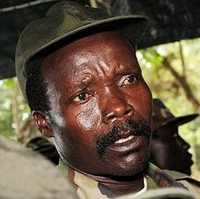A new piece of legislation signed into law on Monday, May 24, by President Barack Obama has the potential to end one of Africa's longest-running insurgencies. The "Lord's Resistance Army Disarmament and Northern Uganda Reconstruction Act" requires the Obama administration to prepare a multilateral strategy to eliminate the threat of the Lord's Resistance Army (LRA), a rebel group originating in northern Uganda that has terrorized civilians in numerous African nations since the late 1980s. To be successful, however, policymakers charged with designing this strategy need to understand why the Ugandan government has failed to defeat the LRA in the past 20 years. In short, the new strategy must take the LRA seriously, not just as a problem, but as an adversary.
Throughout the LRA's history, the Ugandan People's Defense Force (UPDF) has often underestimated the group. UPDF officers have consistently refused to treat the LRA as a serious threat, despite the killings and abductions of thousands in Northern Uganda. One Ugandan politician involved in early efforts to quiet the LRA insurgency, who spoke to World Politics Review on condition of anonymity, recounted how UPDF officers regarded the rebels as "ignorant peasants." LRA documents seized during clashes were often discarded without any intelligence analysis. Army officers frequently claimed that the end of the LRA was in sight, a practice that has now gone on for two decades.
Currently, the official UPDF line is that the LRA lacks the capacity to kill large numbers of people, even as evidence mounts that the rebels recently committed massacres of hundreds of civilians in Congo. Although denying the LRA strength might appear to be UPDF propaganda, it actually reflects a real, if delusional, belief that the LRA is a spent force. As reported often in the local media, the Ugandan government claims the LRA is a ragtag army led by a crazed man, Joseph Kony. Both history and the reality on the ground indicate that even after 20 years of conflict, the Ugandan army does not know its adversary very well.

